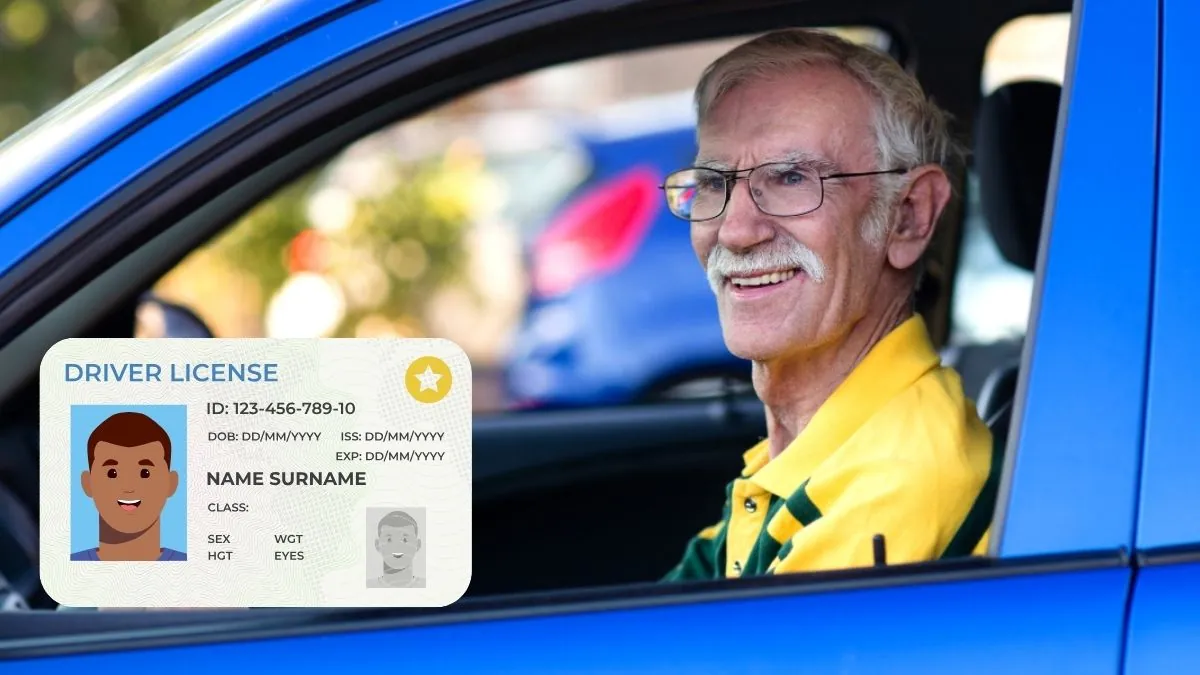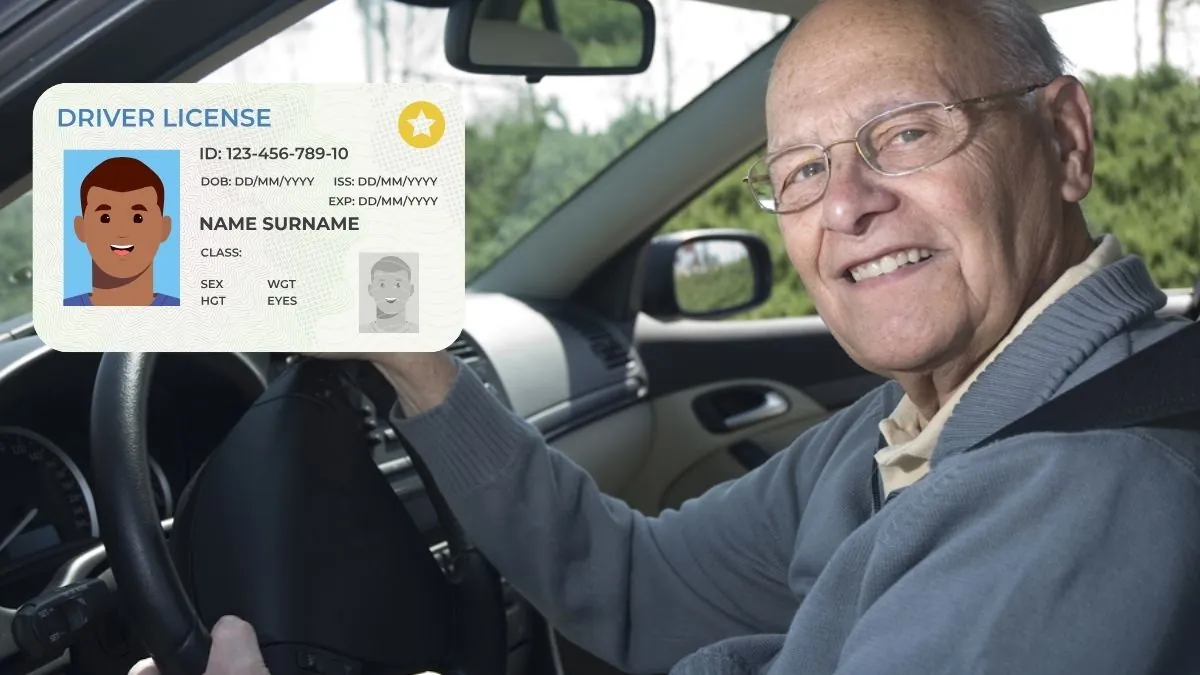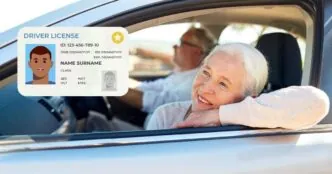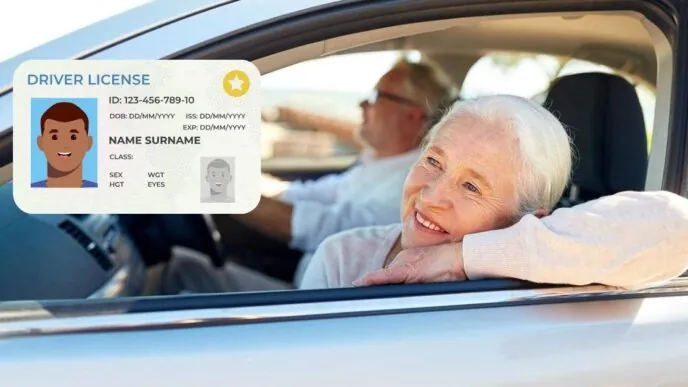As the baby boomer generation ages, an increasing number of seniors find themselves navigating the often complex process of license renewal. In Maryland, this process is especially important given the state’s strict requirements and guidelines tailored specifically to older drivers. This article provides a comprehensive guide to the 2024 license renewal process for seniors in Maryland, including important statistics, city-specific information, and critical deadlines. Whether you’re a senior preparing for renewal, or a family member helping a loved one, this article will ensure you have all the necessary information.
Importance of Driving for Seniors
For many seniors, driving is more than just a mode of transportation—it’s a symbol of independence and self-sufficiency. In Maryland, where public transportation options can be limited, especially in rural areas, driving remains a crucial part of daily life for many older adults. However, as drivers age, the risks associated with driving can increase, prompting the state to implement specific renewal requirements aimed at ensuring that older drivers remain safe on the road.
Statewide Statistics on Senior Drivers
According to the Maryland Motor Vehicle Administration (MVA), there are over 1.1 million licensed drivers aged 65 and older in the state as of 2023. This demographic represents approximately 20% of the state’s total driving population, a number that has been steadily increasing as the general population ages. Notably, drivers aged 75 and older are involved in fewer crashes than younger drivers, but when accidents do occur, they are more likely to result in serious injury or fatality. These statistics underscore the importance of ensuring that older drivers are fully capable of safely operating a vehicle.
Introduction to the 2024 Renewal Process
The license renewal process for seniors in Maryland has undergone several updates for 2024, including changes to documentation requirements and an increased emphasis on vision and medical exams. The goal is to balance the need for safety with the desire to keep seniors driving for as long as it is safe for them to do so. The following sections will cover everything you need to know to navigate this process smoothly.
Eligibility and Requirements
Age-Specific Requirements for License Renewal
In Maryland, the standard driver’s license is valid for 8 years; however, this duration changes for seniors. Drivers aged 70 and older are required to renew their licenses every 5 years. This reduced renewal period allows the state to more frequently assess the physical and cognitive abilities of older drivers.
For seniors, renewing a license requires meeting several specific criteria:
- Age 40 and older: Must submit a vision report from an eye care provider every renewal.
- Age 70 and older: In addition to the vision report, a medical certification may be required if the driver has a medical condition that could affect their ability to drive safely.
Documentation Needed
The documentation required for renewal can vary depending on individual circumstances but generally includes:
- A completed renewal application form
- Proof of identity (e.g., passport, birth certificate)
- Proof of residency (e.g., utility bill, lease agreement)
- Vision certification from an eye care provider
- Medical certification if required
Vision and Medical Exams
The vision exam is a crucial part of the renewal process for seniors. The MVA requires that vision certification must be done within 12 months of the renewal application. If the vision standard is not met, the driver may be required to wear corrective lenses, or in some cases, the license may be denied.
For those aged 70 and older, or those with certain medical conditions, a medical report from a physician may also be required. This report must confirm that the individual is physically and mentally capable of driving safely. Conditions that might prompt the need for a medical report include diabetes, heart conditions, or neurological disorders such as dementia.
Specific Rules for Drivers Aged 70 and Above
Drivers aged 70 and above may also be subject to additional testing if there is any doubt about their driving abilities. This could include a road test, which would be conducted by an MVA examiner. Moreover, the MVA can impose driving restrictions, such as no nighttime driving or no highway driving, based on the results of the medical and vision exams.
Steps to Renew a License in Maryland
Step-by-Step Guide to the Renewal Process
The license renewal process for seniors in Maryland can be completed either online or in person, depending on the individual’s preference and eligibility.
Online Renewal Process:
- Eligibility Check: Verify eligibility for online renewal by visiting the MVA website.
- Complete the Application: Fill out the renewal form online.
- Submit Required Documents: Upload the necessary documents, including the vision certification and, if applicable, the medical certification.
- Payment: Pay the renewal fee using a credit card.
- Receive New License: The new license will be mailed to the individual’s address on file.
In-Person Renewal Process:
- Schedule an Appointment: Visit the MVA website or call to schedule an appointment at the nearest office.
- Complete the Application: Fill out the renewal form provided at the MVA office.
- Vision and Medical Exam: Undergo the required vision and, if necessary, medical exams.
- Submit Documentation: Present the necessary documents to the MVA representative.
- Payment: Pay the renewal fee by cash, check, or credit card.
- Receive New License: The new license will be issued on the spot or mailed to the individual’s address.
Online vs. In-Person Renewal Options
While online renewal is a convenient option for many, not all seniors may be eligible. For instance, those who need to undergo additional testing or who have medical conditions that require MVA review must renew in person. Additionally, seniors who are not comfortable with digital platforms may prefer the in-person option, where they can receive assistance from MVA staff.
Important Deadlines for 2024
The MVA typically sends a renewal notice 60 days before the license expiration date. It is advisable to start the renewal process as soon as possible after receiving this notice, especially if a medical examination is required. Failure to renew by the expiration date can result in fines or penalties, and in some cases, the need to re-take both the written and road tests.
City-Specific Information
Baltimore: Local MVA Offices, Senior Services
Baltimore, the largest city in Maryland, offers several MVA offices where seniors can renew their licenses. Notable locations include the Mondawmin MVA branch and the Loch Raven MVA branch, both of which are accessible by public transportation. The city also provides various senior services through the Baltimore City Department of Aging, including transportation assistance to MVA offices and help with online renewals.
Annapolis: Assistance Programs, Senior-Friendly Transportation Options
In Annapolis, seniors can take advantage of the services provided by the Anne Arundel County Department of Aging and Disabilities. These services include help with scheduling MVA appointments and arranging transportation to the MVA offices. Annapolis also offers senior-friendly public transportation options, such as reduced fares on Annapolis Transit buses.
Frederick: Community Resources, Additional Requirements
Frederick County is home to a growing senior population, and the Frederick MVA branch is well-equipped to handle license renewals for older drivers. The Frederick Senior Center provides workshops on navigating the MVA process, including how to gather the necessary documents and complete the online renewal process. Seniors in Frederick may also need to meet additional requirements if they have specific medical conditions, as the county has a higher rate of seniors with chronic illnesses.
Ocean City: Seasonal Considerations for License Renewal
Ocean City is a popular retirement destination, and its population swells during the summer months. Seniors residing in Ocean City should be aware of the seasonal fluctuations in MVA office hours and wait times. It is recommended to avoid the summer rush by renewing your license in the off-season when the MVA offices are less crowded. Additionally, Ocean City offers shuttle services for seniors needing transportation to the nearest MVA office.
Common Challenges and Solutions
Dealing with Medical Conditions
Medical conditions can complicate the license renewal process for seniors. Conditions such as vision impairment, hearing loss, and cognitive decline are common among older adults and can affect driving ability. It is important to be honest when reporting medical conditions to the MVA, as failure to do so can result in legal consequences. To address these challenges, seniors should work closely with their healthcare providers to obtain the necessary medical certification and explore options such as adaptive driving equipment or driving courses tailored for seniors.
Navigating Online Services
While online renewal is convenient, not all seniors are comfortable using digital platforms. This can be particularly challenging for those who are not tech-savvy or who do not have access to a computer or the internet. To assist seniors in navigating online services, many libraries and community centers across Maryland offer free internet access and assistance with online forms. Family members can also play a crucial role in helping seniors complete the online renewal process.
What to Do if a License Is Suspended or Revoked
If a senior’s license is suspended or revoked, it is important to understand the reasons behind the decision and the steps needed to appeal or rectify the situation. In Maryland, a license may be suspended or revoked due to medical conditions, failure to renew on time, or involvement in a serious accident. Seniors facing this situation should contact the MVA immediately to discuss their options, which may include re-taking the road test, undergoing a medical evaluation, or attending a driver improvement program.
Senior Safety and Driving
Statistics on Senior Driving Accidents in Maryland
While seniors tend to drive less frequently than younger drivers, they are more likely to be involved in serious accidents when they do drive. According to the Maryland Department of Transportation, seniors account for approximately 15% of all traffic fatalities in the state, despite representing a smaller percentage of the driving population. This disparity highlights the importance of regular medical and vision assessments to ensure that seniors are fit to drive.
Tips for Maintaining Driving Safety
Maintaining driving safety is crucial for seniors who wish to continue driving. Some tips to ensure safety include:
- Regular Health Check-Ups: Keep up with regular visits to your healthcare provider to monitor conditions that could affect driving.
- Adjust Driving Habits: Avoid driving at night, during rush hour, or in bad weather conditions if these situations make you uncomfortable.
- Stay Updated on Road Rules: Consider taking a refresher course to stay current with road rules and regulations.
- Use Adaptive Equipment: Explore options such as larger rearview mirrors, pedal extenders, or steering wheel grips designed for seniors.
Resources for Alternative Transportation
For seniors who decide that driving is no longer safe or desirable, Maryland offers several alternative transportation options. These include senior shuttle services, ride-sharing programs with senior discounts, and public transportation with reduced fares for older adults. The Maryland Transit Administration (MTA) offers MobilityLink, a paratransit service designed for individuals who are unable to use regular bus services due to age or disability.
Frequently Asked Questions
What Happens if You Miss the Renewal Deadline?
If you miss the renewal deadline, your license will expire, and you will be driving illegally. It is important to renew as soon as possible, as driving with an expired license can result in fines or penalties. If your license has been expired for more than a year, you may be required to retake both the written and road tests.
Can Family Members Assist in the Renewal Process?
Yes, family members can assist seniors in the renewal process by helping with the online application, gathering required documents, or providing transportation to the MVA office. It is important to ensure that all information provided is accurate and that the senior is present for any required in-person appointments.
What to Do if a Senior No Longer Feels Comfortable Driving?
If a senior no longer feels comfortable driving, it is important to have an open and honest conversation about alternative transportation options. Maryland offers several programs and services designed to help seniors maintain their independence without the need to drive. Family members and caregivers can play a vital role in helping seniors transition away from driving by arranging transportation and exploring community resources.
Conclusion
Renewing a driver’s license can be a daunting task for seniors, but with the right information and resources, it can be a straightforward process. In Maryland, the 2024 license renewal process for seniors has been designed with safety and convenience in mind. By understanding the requirements, gathering the necessary documentation, and taking advantage of available resources, seniors can continue to drive safely for as long as possible.
Staying informed and proactive is the key to a successful license renewal. Whether you are a senior driver or a family member assisting a loved one, this guide provides all the information needed to navigate the 2024 renewal process with confidence. Remember, the goal is not just to renew a license, but to ensure that every driver on Maryland’s roads is as safe as possible.
This Article Includes










